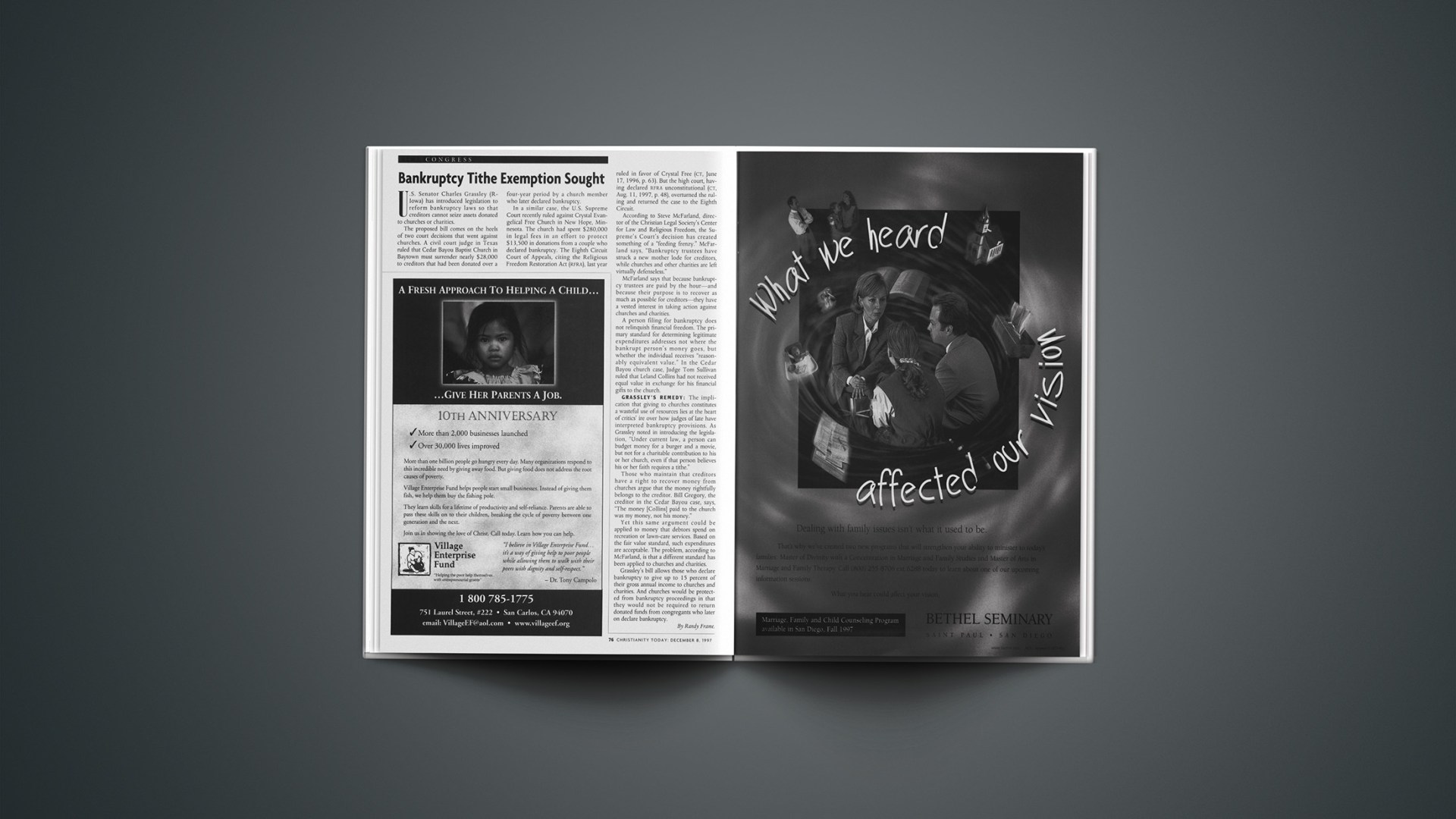U.S. Senator Charles Grassley (R-Iowa) has introduced legislation to reform bankruptcy laws so that creditors cannot seize assets donated to churches or charities.
The proposed bill comes on the heels of two court decisions that went against churches. A civil court judge in Texas ruled that Cedar Bayou Baptist Church in Baytown must surrender nearly $28,000 to creditors that had been donated over a four-year period by a church member who later declared bankruptcy.
In a similar case, the U.S. Supreme Court recently ruled against Crystal Evangelical Free Church in New Hope, Minnesota. The church had spent $280,000 in legal fees in an effort to protect $13,500 in donations from a couple who declared bankruptcy. The Eighth Circuit Court of Appeals, citing the Religious Freedom Restoration Act (RFRA), last year ruled in favor of Crystal Free (CT, June 17, 1996, p. 63). But the high court, having declared RFRA unconstitutional (CT, Aug. 11, 1997, p. 48), overturned the ruling and returned the case to the Eighth Circuit.
According to Steve McFarland, director of the Christian Legal Society’s Center for Law and Religious Freedom, the Supreme’s Court’s decision has created something of a “feeding frenzy.” McFarland says, “Bankruptcy trustees have struck a new mother lode for creditors, while churches and other charities are left virtually defenseless.”
McFarland says that because bankruptcy trustees are paid by the hour—and because their purpose is to recover as much as possible for creditors—they have a vested interest in taking action against churches and charities.
A person filing for bankruptcy does not relinquish financial freedom. The primary standard for determining legitimate expenditures addresses not where the bankrupt person’s money goes, but whether the individual receives “reasonably equivalent value.” In the Cedar Bayou church case, Judge Tom Sullivan ruled that Leland Collins had not received equal value in exchange for his financial gifts to the church.
GRASSLEY’S REMEDY: The implication that giving to churches constitutes a wasteful use of resources lies at the heart of critics’ ire over how judges of late have interpreted bankruptcy provisions. As Grassley noted in introducing the legislation, “Under current law, a person can budget money for a burger and a movie, but not for a charitable contribution to his or her church, even if that person believes his or her faith requires a tithe.”
Those who maintain that creditors have a right to recover money from churches argue that the money rightfully belongs to the creditor. Bill Gregory, the creditor in the Cedar Bayou case, says, “The money [Collins] paid to the church was my money, not his money.”
Yet this same argument could be applied to money that debtors spend on recreation or lawn-care services. Based on the fair value standard, such expenditures are acceptable. The problem, according to McFarland, is that a different standard has been applied to churches and charities.
Grassley’s bill allows those who declare bankruptcy to give up to 15 percent of their gross annual income to churches and charities. And churches would be protected from bankruptcy proceedings in that they would not be required to return donated funds from congregants who later on declare bankruptcy.
Copyright © 1997 Christianity Today. Click for reprint information.
December 8, 1997 Vol. 41, No. 14, Page 76










